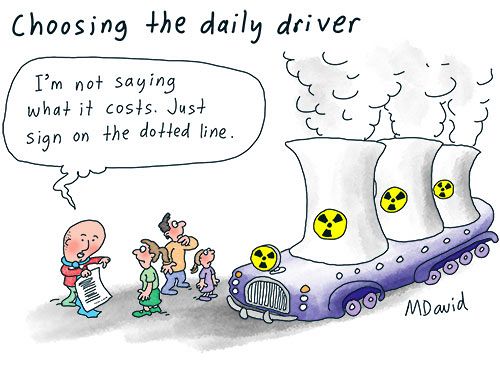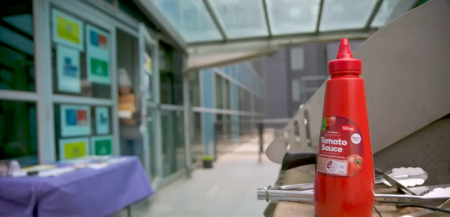Polls about who will win Australia's next Federal Election are mixed. Still, one thing is sure: Peter Dutton's nuclear power policy is dividing his party, which doesn't bode well for his leadership, writes Belinda Jones.
THE PAST FEW weeks in international politics have surprised, shocked and concerned Australians and many others around the world.
Last week saw the attempted assassination of U.S. Republican candidate and former President Donald Trump and unprecedented calls for sitting President Joe Biden to abandon his re-election bid. The Israeli Knesset voted “overwhelmingly against Palestinian statehood” on the eve of Prime Minister Benjamin Netanyahu’s USA visit.
The previous week saw the Tories suffer their worst election defeat “in parliamentary history” — routed after 14 years in Government in the United Kingdom by the Labour Party. At about the same time, a surprise defeat of the far-Right in France defied polls that had predicted a decisive far-Right win.
None of these political events are incredibly eventful on their own. However, in the current political climate, these tumultuous events – back-to-back in quick succession and juxtaposed against Australian domestic politics – offer sobering reminders of the realities of global politics. Politics can be a dangerous profession, a roller-coaster ride of the highest of highs and lowest of lows.
The reality of these events has left many Australians speculating as to what it all means for us — just how will these changes impact the Australian political landscape and the next Federal Election?
Even though Australia’s next Federal Election isn’t due until May 2025, Prime Minister Anthony Albanese has already been responding to questions about an “early election”.
Albanese travelled to Queensland to announce his candidate for Dickson for the upcoming Election; Ali France will fight Leader of the Opposition, Peter Dutton, for a third time for his marginal seat, which may be the impetus for early Election speculation.
Equally, other minor parties, Independents and communities are gearing up for this next election. Many “Voices of …” movements are actively recruiting candidates and volunteers for seats such as Bradfield, Dickson, Groom, McPherson, Fadden, Farrer and many more that major parties traditionally hold.
Given the rolling coverage of international political events, it’s unfathomable to think these unprecedented events will not have some kind of impact on Australia’s next Federal Election.
Progressive parties will be facing existential threats. The Greens are facing backlash from progressive Jewish voters. Labor is facing a backlash against many traditional voters who disagree with the Government’s position on Israel, including the appointment of a Special Envoy to Combat Antisemitism in Australia, whistleblowers and other issues.
Even the Coalition is facing an existential threat to its own survival due to Peter Dutton’s insistence on including nuclear power plants in his policy platform, which is dividing the party and local residents alike.
Dutton has also failed to secure the support of major business groups for his nuclear power policy. This week, several major business groups issued a joint statement expressing support for the energy market operator’s 25-year transition plan, which does not include nuclear energy in the mix.
The upcoming visit by Australia’s Head of State, King Charles III, will only likely further destabilise domestic politics by stirring republicans to call for Australia to become a republic sooner rather than later.
This melting pot of international issues, mixed with other domestic issues (predominantly cost-of-living, education, health, energy, environment and housing), will likely ensure the next Federal Election is a roller-coaster of epic proportions.
Many Australians will likely change their vote for the first time because the political response to some pressing issues has become a deal-breaker for them.
Throughout our political history, Australians have traditionally opted for the "sensible centre" — our politics largely factored by age demographics. But this, too, is changing with significant voting trends now determined rather by gender than age. A recent study shows females are now more likely to vote progressively while males are more likely to vote conservatively.
Polls are becoming increasingly useless because their predictions are no more than guesses these days, as in the case of France recently, where polls got it completely wrong.
This may be a saving grace for Peter Dutton as he approaches the dreaded Liberal Party benchmark for political leadership longevity – that is, 30 straight Newspoll losses in a row — which, ironically, was one of the reasons Dutton attempted to topple Turnbull back in 2018. If Dutton loses the next Newspoll, then that’ll be 26 in a row that he’s lost to Albanese.
So, while we look overseas with shock and awe, we must reflect on how these events will dramatically influence our next federal Election and our political landscape over the next few months and years.
The likelihood of a hung parliament after the next Election is probably higher than it has ever been, as many more Australians feel compelled to throw their hats into the political ring or change long-held political beliefs and voting patterns.
For many, this is a heart-wrenching exercise that leads to a period of instability and change. For political parties, it is time to nail their colours to the mast and bear the headwinds that brings.
Buckle up, this political ride is starting to get bumpy!
Belinda Jones is an IA columnist and political commentator. You can follow Belinda on Twitter/X @belindajones68.
Related Articles
- Putting the fork to pork-barrelling and branch-stacking
- ICAC alone won't fix our failing democracy
- Working class moves Left under conditions of crisis
- ELECTION LIVESTREAM HIGHLIGHTS: Dr Tim Dunlop and Professor Kerryn Phelps
- Mayhem at the democracy sausage stall
 This work is licensed under a Creative Commons Attribution-NonCommercial-NoDerivs 3.0 Australia License
This work is licensed under a Creative Commons Attribution-NonCommercial-NoDerivs 3.0 Australia License
Support independent journalism Subscribe to IA.














